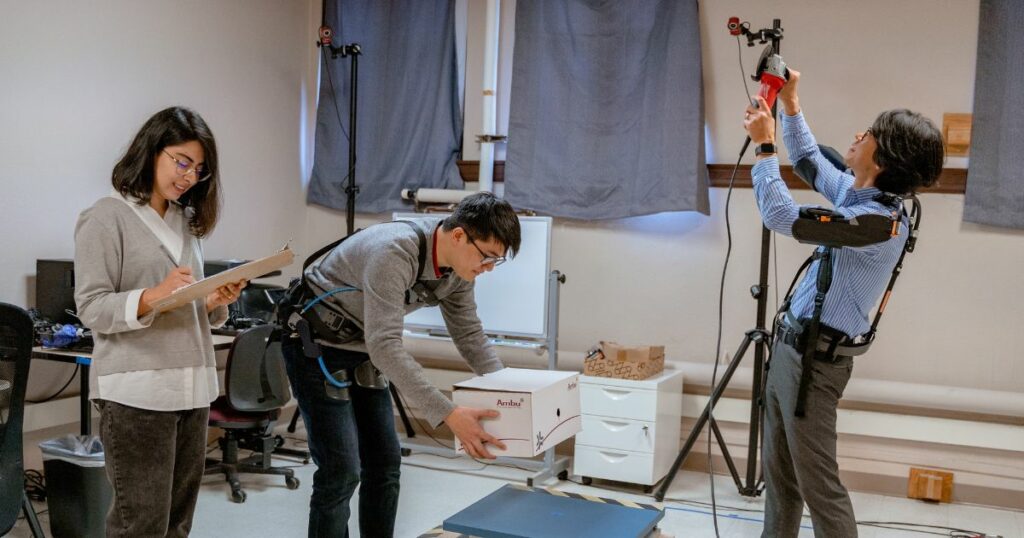
Not sure how to find a PhD advisor or how to start a conversation with a potential advisor? Here are some tips.
1. Learn about the faculty advising structure for your program of interest.
At the graduate level, every program has its own admission and research requirements.
Check your program of interest’s website to learn how faculty advisors are appointed.
Some programs will
- assign you an advisor,
- ask you to select an advisor once you are in the program or
- require you to secure an advisor before applying for admission.
If you are unsure how graduate faculty advisors are appointed, ask a current grad student in the program or email our Director of Student Recruitment and Admissions David Cortez.
How to find a graduate advisor in Oregon State’s College of Health
- PhD in Public Health: Assigned once you have been admitted
- Master of Public Health: Assigned in the fall, right before you start the program
- Nutrition (PhD/MS): Assigned once you are admitted
- PhD in Human Development and Family Studies: Assigned once you are admitted
- Master of Athletic Training: Typically assigned in the summer after you’ve been admitted
- Master of Adapted Physical Education: Typically assigned in the summer after you’ve been admitted
- PhD in Kinesiology: Secure an advisor before applying. Admission runs through individual faculty members who choose to accept interested students who match their area of research.
If you don’t need to identify an advisor before applying to your specific program, it’s still a good idea to research possible faculty whose work interests you so you can mention in your application the alignment of what you want to learn and accomplish in your field with what the program is doing.
Tip: Even if not required by the program, it’s highly recommended that you contact faculty before applying to inquire if the person you want to work with is accepting new students. If they are and you’re a good match, they can advocate for your admission.
2. Learn about the backgrounds and focus areas of possible PhD advisors.
Use the program’s website to research and identify which faculty you would like to work with.
It’s not recommended to send a mass email to many faculty without investigating whether their interests align with yours or if they are currently working with graduate students.
When reaching out to a faculty member about potential research opportunities, make sure to concisely share these things in your initial email:
- What do you like about their research or focus?
- How do your research interests align?
- What could you bring to their program?
- How will it help you reach your future goals?
How Funmi found a PhD in nutrition advisor
“Admission to the program is in part when you are matched with an advisor prior to applying. So, I contacted Yumie Takata before applying to let her know of my interest.”
Funmi says she met with Yumie via Zoom to discuss her research interests and how they align with Yumie’s work. “She said I could apply to the program and that she would be my advisor [if accepted],” Funmi says.
Learn more about Funmi Amoda’s journey to Oregon State’s nutrition doctoral program.

3. Include your curriculum vitae (CV) in your outreach.
Give faculty an overview of your background and qualifications.
Attach a CV to your introduction email. Learn how to create a CV through the Oregon State Career Development Center.
Do not send research proposals, transcripts or other attachments unless they are requested.
4. Make a good first impression.
Take your time with your first email. Check grammar and spelling. Use the appropriate title for the potential advisor, e.g., “Dear Dr. Ramos,” is often more appropriate than using a first name.
Send your email using an email address that is appropriate — a university email or an email that is your first and last name.
Mention any connections you may already have to the program. Networking is always a good thing!
Keep in mind that impersonal copy-and-paste emails are less likely to be read.
5. Be patient.
Allow two weeks before sending a follow-up email. Faculty often have lots of competing priorities (e.g., classes, grants, research deadlines).
In your first email, request a meeting by Zoom, phone or in person to further discuss your research interests and opportunities. In the second email, reiterate your interest.
If you do not hear from the faculty member after the second email, you can reach out to the graduate program coordinator or another centralized contact for the program and ask how to proceed.

Get help finding a PhD advisor
Our graduate recruiter, David Cortez, can answer your questions about Oregon State graduate programs and chat about your interests, the application process and more.
Email David or call 541-737-5616.